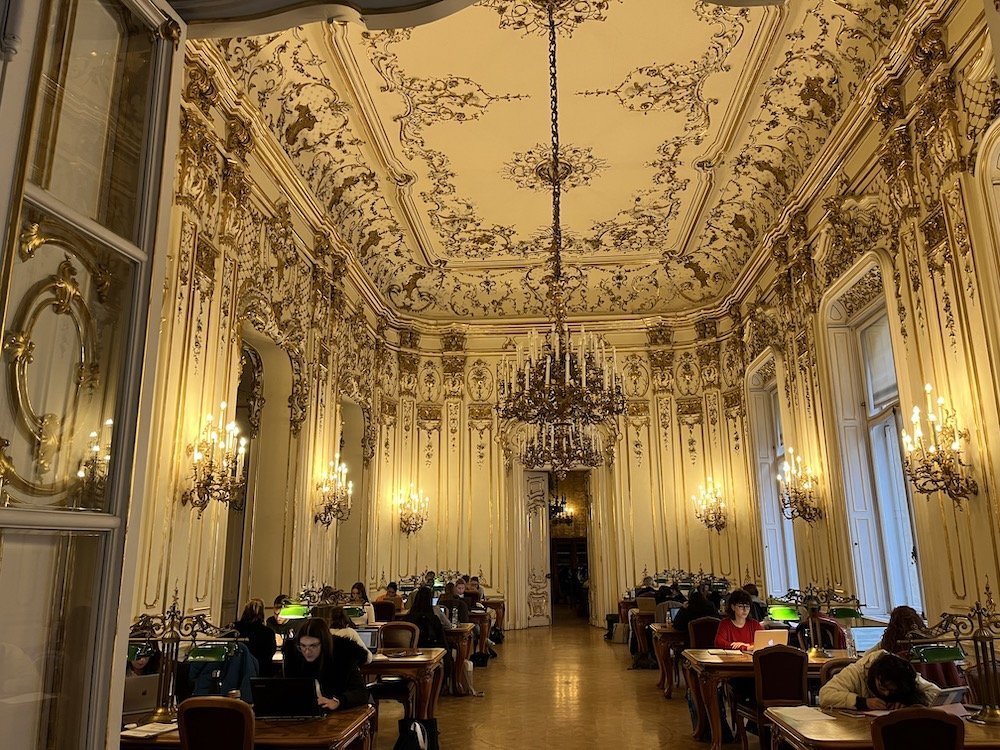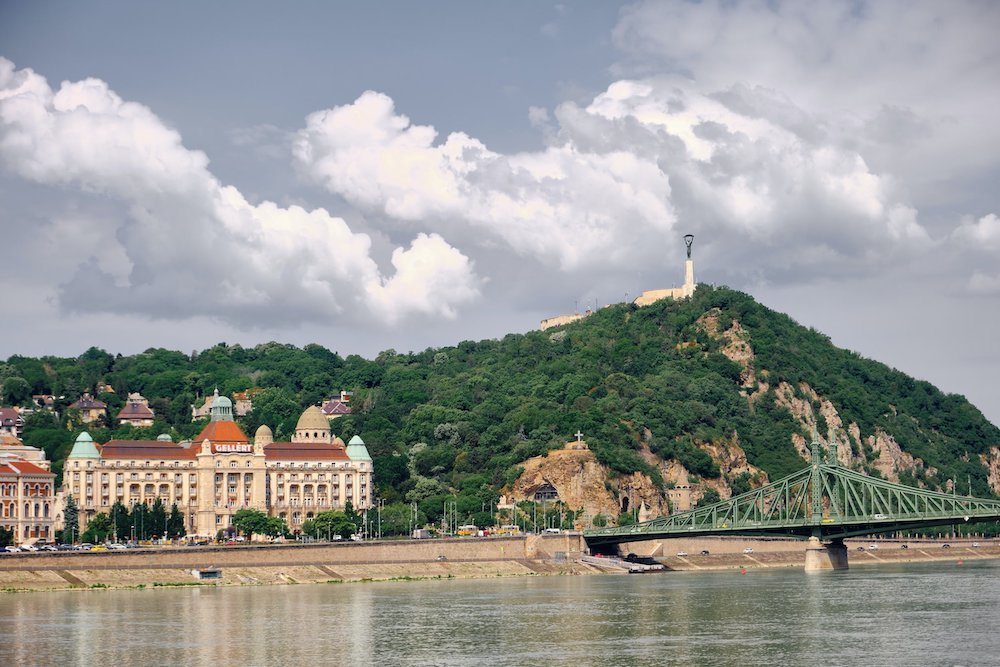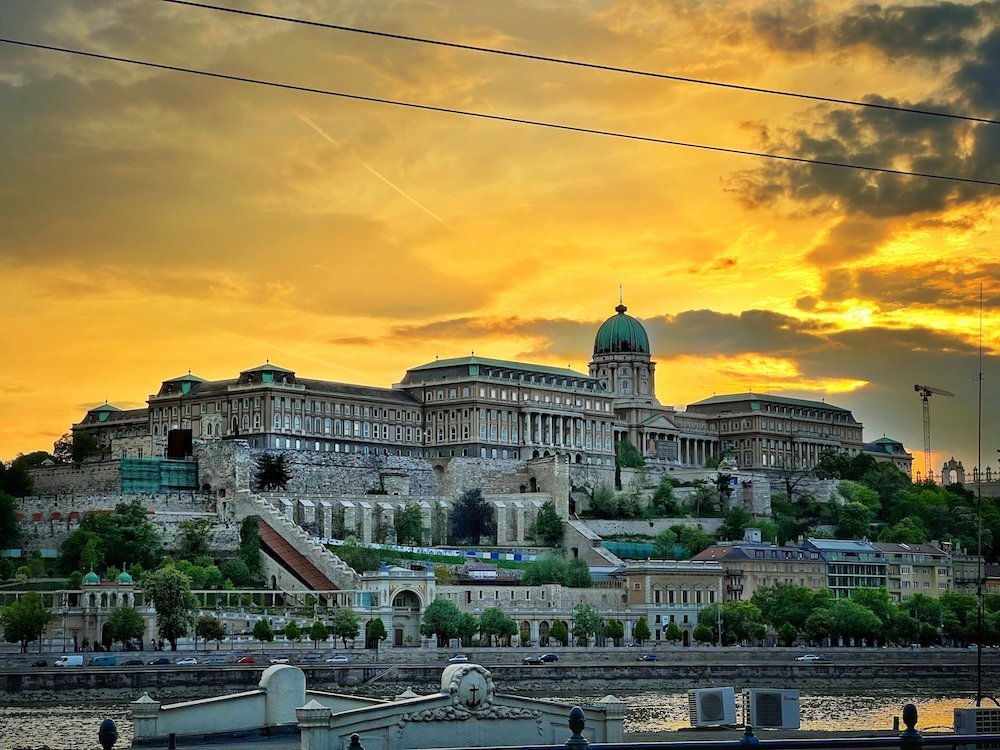17 Things to See and Do in Budapest - A Local’s Guide
Affiliate disclosure: some of the links in this article are affiliate links. If you book using one of them, we’ll earn a small commission. All of our info is free to read and free of ads, so we appreciate it!
Budapest has a wealth of attractions, ranging from some of Europe's most famous landmarks to more obscure curiosities to explore. If you’re short on time, it makes sense to prioritize the type of places you want to check out: do you want to see the main sites or are you more interested in something off-the-beaten-track?
Will you focus your time on art, culture, food & drink, partying, or shopping? Having a few primary goals makes putting together your itinerary easier.
To get you started, we’ve included below a general overview of the different types of things to see & do, along with a few of the most popular sights and activities.
Table of Contents
See more of our Budapest articles:
Budapest planning cheatsheet
 Plan your itinerary with expert advice
Plan your itinerary with expert advice
- Book a Budapest travel consultation with a local expert
 My favorite hotels in Budapest
My favorite hotels in Budapest
- Matild Palace - 5-star luxury in the historic center. $250/night
- Hotel Moments - chic and stylish on Andrássy Avenue. $200/night
- Boutique Hotel Victoria - riverfront views in the Castle District. $150/night
- Casati Hotel - great value near the Opera House. $130/night
- Three Corners Downtown - modern and well-located for sightseeing. $120/night
 Guided tours and activities
Guided tours and activities
- Private guided tours with Attila (my favorite local guide)
- Castle District walking tour (small group)
- Evening Danube River Cruise
- City center bike tour (with e-bikes)
- Street art and the Jewish Quarter
 How to get around
How to get around
- Car rentals with DiscoverCars
- Train tickets from MÁV
- Bus and metro routes at BKK
- Taxis & rideshares with Uber and Bolt
- Airport transfers from Welcome Pickups
1. Head up to Castle Hill
The Fisherman's Bastion and Matthias Church on Castle Hill
Rising up over Buda’s District I is Castle Hill, where you’ll find some of the city’s most well-known sights. The enormous Buda Castle is one, as is the iconic Fisherman's Bastion, as well as Matthias Church, with its colorful roof and absolutely stunning interiors.
At the other end of the hill are the Hungarian National Gallery and the Budapest History Museum. More broadly, this entire area is a blast to wander around. It’s filled with beautifully maintained historic buildings, has quiet, mostly pedestrianized streets, and oozes old world charm.
2. Marvel at the Hungarian Parliament Building
The magnificent Hungarian Parliament building on the banks of the Danube River
Once you’ve finished your sightseeing on Buda Castle, you can walk down the hill to the Danube river and cross the famous Chain Bridge over to Pest.
From here, walk north along the river until you reach the incredible Hungarian Parliament Building. Here, just sit and marvel at one of the world’s most beautiful structures.
After gawking in amazement for a while, be sure to wander around this area a bit more, as it has some amazing monuments and buildings. Be sure to make your way down Hold utca (“utca” means street) ao that you can catch a glimpse of the Hungarian Postal Savings Bank, a beautiful Art Nouveau building famed for its green and yellow tiled roof.
3. St. Stephen’s Basilica
Not far from parliament, you can continue on to the gorgeous and ornate St. Stephen's Basilica, whose enormous interior columns and beautiful stained glass windows are genuinely unbelievable. Even if you don’t especially like churches, this is an architectural masterpiece and you absolutely have to visit.
Pay the extra ticket fee and go up the bell tower for fantastic city views.
4. Stroll along Andrássy Avenue
A stretch of Andrassy Avenue. Photo: Random photos 1989, CC BY-SA 4.0, via Wikimedia Commons
From St. Stephen's Basilica, you can walk up Andrássy Avenue, Budapest’s most famous street, where you’ll pass by the Hungarian National Opera House and countless other grand buildings.
Continue all the way up Andrássy until you reach Heroes’ Square (check out the monument, of course), where you’ll see the Museum of Fine Arts and the Kunsthalle, our main contemporary art museum.
Just behind the square is the enormous and wonderful City Park, which is the perfect place to enjoy a stroll and some people watching on a sunny day. There are a couple of museums and cultural institutions within the park itself too.
5. Take a soak in the city’s (many) luxurious spas
One of the main outdoor pools at the Széchenyi Baths
Of course, be sure to pack your bathing suit, as no trip to Budapest is complete without a visit to one of its famous spas. Right In City Park is the iconic Széchenyi Baths, while over in Buda, you’ll find the art nouveau Gellért Baths and the Ottoman-era Rudas Baths.
These are unquestionably touristy places to visit, but they are touristy for a reason: because they’re absolutely fantastic. You should go early to avoid the crowds, but even if you end up showing up at 2:00 in the afternoon, it’s worth going.


6. Sample local specialties in the Central Market Hall
Undeniably touristy and certainly overpriced in some cases, the Central Market Hall is maybe more noteworthy for its fabulous architecture - it has giant vaulted ceilings supported by huge steal beams - than its food.
Even so, it’s a nice place to go for a wander, and you’ll find vendors selling fresh, local produce alongside meats, pastries, typical spices, and an array of souvenirs. The upper level is filled with food stalls, so this is a great spot to try various local dishes.
7. Head out to Memento Park and the Roman ruins of Aguincum
A monument in Memento Park. Photo: Elelicht, CC BY-SA 3.0, via Wikimedia Commons
For a totally different experience, consider trekking out to Memento Park in the suburbs of Buda. The park is an open-air museum that serves as a cemetery for Communist statues. It’s quite unique and visiting is an interesting experience.
If interested in archaeology, a visit to the ancient Roman city of Aquincum in Óbuda is an absolute must. The site is partially restored and will occupy at least a few hours of your time, especially if you visit the associated museum.
8. Visit some of our excellent museums
The Kunsthalle (Fine Arts Museum) in Heroes' Square. Photo: Robot8A, CC BY-SA 4.0, via Wikimedia Commons
The Millennium Monument in Heroes’ Square
For a day of museum hopping, head up to Heroes' Square and City Park, where you'll find the Hungarian Museum of Fine Arts and the Kunsthalle facing each other on opposite ends of Heroes' Square.
Both museum are excellent, and the Museum of Fine Arts in particular, is a beautiful structure filled with gorgeous halls that are works of art in their own right.
Here are some of the other fabulous options:
City Park Museums: Within City Park you can visit the brand-new Ethnographic Museum, and for something quirky, you should check out the Museum of Agriculture, which is set inside the Vajdahunyad Castle.
House of Terror: Further down Andrássy Avenue, the House of Terror is an interactive and immersive museum that covers Budapest’s history under the oppressive Nazi and Communist regimes.
Hungarian National Museum: For those interested in learning about Hungary’s history, you have the excellent Hungarian National Museum in Pest.
The Ludwig Museum: Located by the Danube River in southern Pest, the Ludwig Museum has a fantastic collection of modern art.
9. Explore Buda Castle and the Hospital in the Rock
Buda Castle atop Castle Hill
Over at Buda Castle, you’ll find the Hungarian National Gallery along with the Budapest History Museum. Right nearby to both museums, the Hospital in the Rock is a former underground hospital and nuclear bunker that's a very curious place to visit.
And more broadly, from just about anywhere on Castle Hill - where the Castle sits perched high over the city - you’ll have fantastic views of the river, Buda, and Pest.

Learn about some of the city's best street art as you walk between some of Budapest's best ruin pubs on this hybrid pub/art crawl, led by lifelong Budapest resident and local guide - Attila!
10. Visit the Dohány Street Syngagogue
This is the largest synagogue in Europe and one of the biggest in the entire world. Its grandeur is complemented by its profound significance to Budapest's Jewish history, which is unfortunately very sad.
Within the complex, you'll also find the Holocaust Memorial and Museum, which offers a moving and educational experience delving into the poignant history of Hungary's Jewish community.
11. Check out some smaller and less-known cultural institutions
One of the ornate halls in the Ervin Szabó Library
In addition to these heavy-hitting cultural venues I’ve mentioned above, Budapest city is dotted with smaller, curious museums and art galleries. A few gems to check out include venues like the Koller Gallery in the Castle District, and Várfok Gallery nearby.
Neither a museum nor a gallery, the Ervin Szabó Library is another very cool place to spend an hour or two. It’s a still-functioning public library, but is housed in a magnificent neo-baroque palace and has gorgeous halls.
There are also some alternative spaces in the VIII District, like ISBN Books and Gallery, which specializes in niche art and literary publications. It also has a gallery downstairs.
For alternative culture, check out nearby Auróra or Gólya. Turbina, in the same area, is a trendy hangout for locals looking for good music.
12. Catch a show at the city’s concert halls and performance venues
The MÜPA cultural center. Photo: Thaler Tamas, CC BY-SA 4.0, via Wikimedia Commons. Cropped from original
The Hungarian State Opera House
Budapest is also famous for its classical music, and the city has some wonderful music venues. Next to the Ludwig Museum and in the same building, you'll find MÜPA, which is a state-of-the-art concert hall sitting right on the river. Next door is the National Theater.
And back downtown, seeing a show at the magnificent Hungarian State Opera House is worth the relatively high ticket prices just for the experience.
For more inexpensive tickets, there are good performances at the Erkel Theater and the Liszt Ferenc Academy of Music.

Get away from the crowds and spend a morning or afternoon exploring some of Budapest's alternative neighborhoods with our favorite local guide, Attila!
13. See a film at one of the independent, art house cinemas
Inside the Uránia Cinema. Photo: Jaimrsilva, CC BY-SA 4.0, via Wikimedia Commons
If you’re a cinema buff, you'll love the hidden little gems that are Budapest's alternative cinemas. The Uránia Cinema is a neo-Moorish structure that resembles a palace or a lush opera house.
The Puskin Cinema is another establishment that comes with old-world opulence. For something grittier and more countercultural, Toldi and Cirkó Gejzír are other interesting options.
Most of these show international art-house films with Hungarian subtitles, but they sometimes have English-language films. Check their websites to see what’s on offer during your trip.
14. Get your party on at the festivals
A performance during the Sziget festival in the summer
Budapest hosts several pretty famous festivals throughout the year, and it definitely lives up to its reputation as a party city. The Sziget rock festival is the most famous, but there's also the Budapest Spring Festival, where you'll find music and theater events across the city, as well as localized or specialized festivals, such as the Bartók Béla Boulevard Festival which takes place in the XI District.
Most art house cinemas like Toldi or Uránia also participate in film festivals, including the Architecture Film Festival the Human Rights Film Festival, and others.
In the summer, the Margaret Island Summer Festival, which takes place at the open-air theater on the island, is a hotspot for opera and classical concerts.
15. Head outdoors – hikes in the hills and parks in the city
A portion of Budapest's City Park.
While Pest is distinctly urban, Budas is surrounded by lush green hills and woodlands that afford excellent opportunities to escape the busy city and get out into some real nature.
The most popular area for hiking in the Buda Hills is around Normafa, which is filled with hiking trails. From Normafa, you can walk over to János Hill, to the Elizabeth Lookout Tower (the highest point in the city), or hike to Fairy Rock.
For something a bit more adventurous and very much unique, I’d suggest going spelunking under the Mátyás Hill in suburban Buda, and adding in a visit to the caves of Pálvölgy or Szemlőhegy.
Alternatively, if hiking and caving aren’t what you’re after, you can still experience the Buda Hills: just hop on the Children's Railway, which is a single gauge retro railway line staffed by uniformed children (engineers and drivers excepted of course – they’re adults).
And although the city proper suffers from a lake of green spaces, there are still several leafy green parks, such as the famous City Park, Lake Feneketlen, Kopaszi-gát, and Szélklkapu park.
Another great green space in the city is Margaret Island, which sits in the middle of the Danube and has big stretches of parkland along with medieval ruins and a rose garden.
And on hot days, why not go for a swim? Do like the locals and spend a day at one of the Danube Beaches up at Római Part in the north or Kopaszi Dam in the south.
16. Climb up Gellért Hill
Gellért Hill seen from the riverfront in Pest
If you want a hike with great views but don't want to make a journey far from downtown, you can always climb up Gellért Hill (also found over in Buda). The hike takes around 1.5 hours round-trip and is pretty easy.
It’s a lovely green space, the views from the top are excellent, and the quirky Cave Church at its base (it’s literally carved into the rock) is a neat little place to check out.
17. Do some urban exploring in the outer neighborhoods
Vajdahunyad Castle in City Park, on the border of district 14.
If you want to see a different, more local side of Budapest, you’ll have to head a bit outside of the city center. While there are tons of neighborhoods to explore, I think the 8th, 10th, and 14th districts are the most interesting. Here’s a quick overview of each of them:
Outer VIII District: While many tourists explore the inner part of VIII District, the outer part of the neighborhood beyond the Grand Boulevard is almost entirely ignored. But for those interested in street art, counterculture, or grittier urban areas, this is a great area of the city to explore.
It’s still pretty central (and easy to get to), but it has an entirely different atmosphere than downtown Budapest. This is a diverse area, with a sizable Romani and immigrant population, as well as many young, liberal-leaning creatives.
You'll find some exciting bars and cultural centers in this part of town, as well as the China Market, which is a warren of warehouse buildings in a former factory that has been converted into a wholesale market.
As you wander through the market, you’ll see signs written only in Chinese and will like you’ve been transported out of Budapest and Europe entirely.
X District: If you head a little further out into the X District, you’ll discover Budapest’s Chinatown. The city has a sizable ethnic Chinese population of around 30,000 people, owing mostly to incoming immigration from 1989 to 1992 following the fall of communism.
Our Chinatown is a commercial area, so don’t expect traditional landmarks like pagodas or ornate gates, but this can still be a fascinating place to explore. Head to the Monori Center and explore the shops, stalls, and huge range of authentic and excellent Chinese cuisine.
There’s also a nearby Night Market that takes place on summer evenings.
XIV District: For architecture lovers, we’d suggest making your way just beyond City Park into the XIV District, where you’ll find a host of architectural curiosities.
If you’re interested in art nouveau architecture, the villa district here will be a treat to explore, especially the Institute of Geology and Geophysics, which is a stunning blue-tiled building built by by Ödön Lechner – Hungary's equivalent of Antoní Gaudí.



Plan with Local Expert Attila!


























